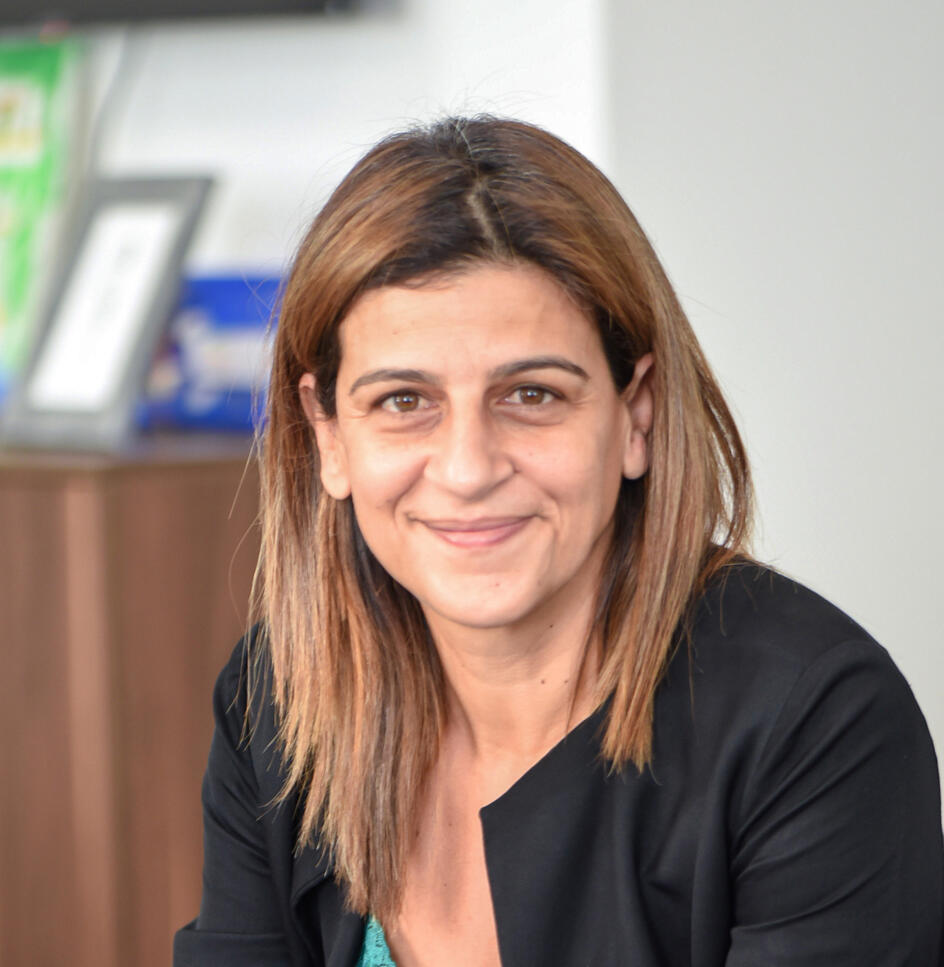It was about time we celebrated
The Top 10 HR voices
Recognizing the boldest, most transformational HR leaders — and the voices shaping the future of work in many locations.
choose location to continue
About the initiative
What is Top 10 HR voices ?
It’s a curated celebration of HR professionals who are transforming workplaces with courage, intelligence, and vision.
We spotlight one voice at a time - real people, real insight, real impact.Built by HR leaders who believe the future of HR must be human, strategic, and honest.→ Published exclusively via LinkedIn & top10hrvoices.com
→ Featuring one HR professional per issue
→ Leading to the first-ever Top HR Voices Awards in 2026* which will be hosted in beautiful Cyprus.(STAY TUNED for MORE locations & initiatives around the "TopVoices" Eco-System)*Final dates and locations are subject to confirmation of funding, and may shift to ensure the awards meet the standard and scale they deserve.
Explore your Partnership with:
The Top 10 HR voices
(INVITE ONLY)
Don't have the access code?
Request one below
Explore your Sponsorship Options with:
The Top 10 HR voices
(UPON REQUEST & APPROVAL)
UPCOMING AWARDS
Coming "The Top Voices Awards" in your area
A single night. Three perspectives. One global stage.Each year, The Top Voices Awards bring together the boldest HR leaders, the most authentic employee voices, and the most visionary executives — celebrating those reshaping the future of work.The journey begins locally, through weekly features and curated editions.
It culminates globally, at the annual Awards Gala hosted in a different city each year.Upcoming Editions
🇨🇾 CYPRUS EDITION — LIVE
Hosted in Limassol, Q4 2026, the Cyprus edition will spotlight HR transformation across:
→ Culture & Change
→ Learning & Talent
→ Strategy & Transformation
→ Compliance & Ethics
→ Emerging HR Innovators
📅 Voting opens: April 1, 2026
🏆 Awards Gala: Q4 2026, Limassol*🇬🇷 GREECE EDITION — COMING SOON
Launching early 2026, culminating in a gala hosted in Athens, 2027.*
→ Applications open: January 2027
→ Voting period: April 1–31, 2027
→ Awards Gala: Q4 2027, Athens*More editions roll out through 2026–2027 across Europe, the Middle East, and beyond.This is only the beginning of The Top Voices Ecosystem: HR | Employee | C-Suite.*Final dates and locations are subject to confirmation and may shift to ensure the awards meet the standard and scale they deserve.
The curator behind the scenes
Founder
This platform wasn’t crafted in a strategy offsite.
It was born from something sharper — fatigue and intent.Fatigue with recycled leadership panels, scripted interviews, and visibility that’s purchased, not earned.Intent to remind the world that leadership isn’t a title — it’s the weight of every decision that shapes culture, trust, and consequence.Top10HRVoices.com is curated by Vasileios Ioannidis, founder of the The Top 10 Voices Ecosystem — a Cyprus-based Tectonic HR™ Architect and Fractional CHRO, whose work through HackHR.org redefines how leadership systems scale, govern, and sustain.This isn’t a ranking.
This isn’t PR.This is a record of accountability — where influence is proven, not performed.One Voice at a time.


The Inaugural Voice from Cyprus
Commissioner for Gender EqualityJosie Christodoulou
"Equality is not a favor or a privilege; it is a right, a principle and a responsibility"
The Launch Statement
Watch the message that launched Top HR Voices of Cyprus.
"A safe space for women at work goes far beyond physical safety."
Josie Christodoulou

"Gender balanced leadership sparks innovative ideas, drives smarter decisions, and strengthens oversight"
Commissioner for Gender Equality, Republic of Cyprus · August 28, 2025 · 9 min read
Q: As Commissioner for Gender Equality, how would you describe your personal vision for institutional impact? And what does “gender equity” mean to you on a practical, everyday level in Cyprus?JC: My personal vision is to contribute to the creation of a society where equality between women and men is not just a legal standard, but a principle and lived reality, embedded in every institution and workplace.Institutional impact essentially means driving systemic change through policy reform, awareness raising and accountability and transparency. It means ensuring that gender equality is not treated as a side issue, but as a core element of social justice, democratic governance, and sustainable development. To this end, we are constantly building strong partnerships across government, civil society, and the private sector. The aim is to mainstream gender horizontally, into all areas of decision-making in order to develop policies that are based on and address the different needs of men and women effectively. This includes, inter alia, gender-responsive state budgeting, structures that support work-life balance, and inclusive leadership.On a practical, everyday level, gender equity means that a woman can pursue any professional aspiration and career she wishes without gender bias or limitations, visible or invisible. It means that men can share domestic and family responsibilities. It means that women in rural areas have equal access to education, healthcare, and economic opportunity. It also means recognizing and addressing invisible barriers, such as unpaid childcare and unconscious biases that continue to prevent women from fulfilling their professional aspirations.Ultimately, gender equity is about fairness and stronger economies. It’s about ensuring that everyone has the choice and the opportunity to reach their full potential.·Q: In your experience, what are the most deeply rooted cultural norms and/or barriers that still perpetuate gender inequality in the Cypriot workplace?JC: In Cyprus, as in many societies, gender inequality in the workplace is not always overt - it is often embedded in long-standing gendered norms and expectations. One of the most persistent barriers is traditional perceptions around gender roles, particularly the idea that domestic and childcare responsibilities are primarily a woman’s duty removing the responsibility from men. This mindset continues to influence hiring processes, career advancement and workplace dynamics, often disadvantaging women.We also see the persistence of the so-called “glass ceiling” or “sticky floors”, whereby women are underrepresented in leadership and decision-making positions. Based on gender stereotypes, there’s a tendency to associate leadership with masculinity, making it harder for women to be seen as assertive or capable leaders – in a stereotypical sense, regardless of their actual performance or qualifications.Additionally, inequality in remuneration remains a concern. Despite some progress, the gender pay gap is still evident, reflecting both structural discrimination and occupational segregation, with women being overrepresented in lower-paid sectors or roles.Finally, while the government has introduced a number of measures to support work-life balance, there is more to be done by the private sector, employers and organizations as balancing work and family should not be solely considered a woman’s task. Workplace policies could include parental leave and flexible working hours, for example, which could help in this direction.Changing these norms requires policy reforms, persistent education, strong leadership from both the private and public sectors, and societal commitment to equality at all levels.·Q: What does a “safe space” for women at work look like in practice and where are we still falling short?JC: A safe space for women at work goes far beyond physical safety. In practice, it means a professional environment where women feel respected, valued, heard, and protected from gender-based violence. Obviously, in such a setting, discrimination, harassment and intimidation have no place. It’s a space where their contributions are taken seriously, where they can speak up without being dismissed or penalized, and where systems are in place to support their growth and well-being.To ensure such a space requires clear political will, enforced policies including measures against sexual harassment and gender-based discrimination, accessible reporting mechanisms, and visible, clearly defined consequences for inappropriate behavior. It also means fostering a culture of inclusivity as part of daily operations, where the voices of both women and men are invited to the table, and where there is active mentoring and support for women’s leadership.Last year, the President of the Republic, Ministers, Deputy Ministers and Commissioners signed the "Political Declaration on Gender Equality" confirming the government's political will to promote gender equality as well as its zero tolerance for any sexist or harassing behavior on the basis of gender in the Public Service. Such a declaration is a good example for companies and organizations to follow in their effort to establish a culture of gender equality in their operation, in a top-down way.Women, especially in male-dominated sectors, are still overlooked or undermined. They are underrepresented in leadership positions and boards. An important tool to overcome this imbalance, is the "EU Gender Balance on Corporate Boards Directive". It aims to more balanced gender representation on the boards of listed companies across all EU Member States. Specifically, it sets targets of at least 40% of non-executive board members or 33% of all board members being from the underrepresented sex, with a deadline for compliance by June 30, 2026. Cyprus is in the process of transposing the directive into its legal system and we are working with the office of the Law Commissioner in this directionSexual harassment often goes unreported due to fear of judgment or retaliation, creating a culture of silence or tolerance around this unacceptable behavior.The way to overcome these shortcomings is through gender-sensitive HR practices facilitating reconciliation of women’s family and professional life, particularly around maternity, parental and paternity leave, flexible working hours, and career advancement. The absence of such corporate policies makes many workplaces functionally unsafe in terms of equal opportunity and psychological well-being.As for sexual harassment, clear policies and sanctions should be in force and effectively communicated within organizations in order to protect potential victims and deter such conduct. It is also important to encourage women to report such incidents without fearing retaliation of any kind.In short, creating truly safe work spaces means not just responding to problems, but proactively building environments where all employees - women and men - can thrive and grow with dignity and confidence.·Q: What specific, measurable actions can organizations take to move from theoretical support to tangible gender equality?JC: Organizations can adopt a number of practical measures, at different levels, to promote gender equality in their daily operation. Some concrete examples from the work of our Office include:A comprehensive “Action Plan for Gender Equality” in companies and organizations. This action plan was developed as a result of the collaboration between our Office and the "Cyprus Chamber of Commerce and Industry (CCCI)", and as part of the implementation of the National Strategy for Gender Equality 2024–2026. Through specific actions listed in the form of recommendations, the aim is to promote gender equality in businesses. Specifically, the plan includes a corporate policy statement on equality between men and women with a series of proposed actions that cover, among others, the prevention and combating of sexist and harassing behavior and sexual violence, staff awareness on equality issues and surveys to record the different needs of men and women in the workplace. It also covers corporate governance issues, such as gender equality in recruitment and promotion processes, remuneration and professional training.Our collaboration with the "Scientific and Technical Chamber of Cyprus" targets structural and cultural barriers in traditionally male-dominated sectors like engineering and technology. The actions under this partnership are equally specific and measurable and include:
- information programs on engineering disciplines for the needs of secondary education in relation to employment opportunities and professional development and for the encouragement of both sexes to follow related disciplines;
- awareness regarding prejudices and gender inequality in engineering professions, through experiential workshops;
- tackling gender discrimination through the establishment of a work culture that promotes equal participation and fair treatment;
- promoting achievements of both sexes through the use of examples from the history of engineering science as well as recent examples of innovative solutions and technologies in engineering fields;
- development of infrastructure for the care of newborns with the aim of promoting equal opportunities for working parents to advance professionally.What is important to remember is that gender equality in organizations must be mainstreamed in all aspects of their operation in practical ways. Only then can we create work spaces that are truly safe, inclusive, and empowering for all.·Q: How can we redesign workplace policies to support employees (both women and men) in achieving real work-life balance?JC: Achieving real work-life balance for both women and men requires a complete rethinking of how we structure work, shifting away from outdated models that assume one parent (typically the mother) should undertake most family responsibilities. Work-life balance should be ensured for all, as a core component of healthy, modern workplaces. To achieve this, we need workplace policies that are flexible, equitable, and inclusive.In Cyprus, the government has introduced a number of measures in this direction, including:
- increase of maternity leave by 4 weeks (to 22 weeks) for the first child;
- extension of parental leave until the child reaches the age of 15;
- gradual extension of compulsory preschool education from the age of four (4) and gradual extension of full-day school;
- extension of parental leave allowance for the second, third and each subsequent child, and provision of parental leave allowance to self-employed parents; creation of new or expansion of existing nursery schools for children up to four (4) years of age and multipurpose child care centers.Moreover, under the Action Plan jointly formulated by our Office and the "Union of Cyprus Municipalities", yellow-marked parking spaces for families with strollers and for pregnant women are created outside a number of municipal buildings, breastfeeding rooms are set up in city halls, and baby changing tables are installed in men’s toilets. An additional, very important step is our preparation for the formulation of a gendered state budget with the assistance of "EU’s Technical Support Instrument (TSI)". The aim is a more just allocation of public resources in a way that meets the different needs of men and women.Lastly, the government, within the context of tax reform has put forth tax relief proposals where gender is mainstreamed. More specifically, for both parents in the case of families, based on the number of dependent children and students, as well as a proposal to grant single-parent families (in their majority women) the same relief that would apply to families with two parents. These measures encourage women’s more active participation in the labour market and at the same time contribute to improving their living standards.In the same direction, companies and organizations, depending on their size and nature of work, could implement policies that cover, for example, fully paid parental leave for both working mothers and fathers encouraging shared responsibility at home and women’s return to work; practical working arrangements (flexible hours, remote work); establishing the “right to disconnect” policy; return to work programs and career re-entry support especially for young mothers; company subsidized childcare services; management’s accountability for creating balanced work environments.These policies could contribute significantly to more just working conditions and ultimately to more resilient, productive, and humane workplaces.In order for any of these or other similar policies to have a meaningful impact, men can obviously not be absent from the conversation. Their engagement is not just important - it’s essential. Men must be active participants in challenging stereotypes, supporting inclusive workplace cultures, and sharing responsibilities at home.When men are encouraged - and expected - to adjust their schedules to be equally present at home and/or take parental leave, women are relieved from pressure and shared responsibility is normalized. This cultural shift is fundamental. Equality at work begins with equality at home, and that requires engaging men not as bystanders, but as partners in progress.·Q: What unique perspectives do women bring when they reach top decision-making roles? How do we move from “being the first” to building a pipeline of next-generation leaders?JC: When women reach top decision-making roles, they bring not only professional expertise but also unique experiences that broaden the scope of leadership. They tend to approach challenges with a greater emphasis on collaboration, inclusivity, and long-term impact, often highlighting issues that have been historically overlooked, such as social equity, education, care infrastructure, and workplace well-being. Studies have shown that gender balanced leadership sparks innovative ideas, drives smarter decisions, and strengthens oversight.Of course, it is not enough to celebrate a “first woman” in a position of power. Breaking “glass ceilings” must be followed by paving the way for many more women to follow. This means creating intentional pipelines of next-generation women leaders through mentorship, equal access to training, gender-balanced recruitment, and family-friendly policies that support women throughout their careers.We must also reshape workplace culture to value different leadership styles, not just those traditionally modeled by men. That’s how we achieve transformation, where women’s leadership is not the exception, but the norm.·Q: If you could leave one lasting message for the next generation of professionals (women and men alike) what would it be?JC: Equality is not a favor or a privilege; it is a right, a principle and a responsibility. Choose fairness over silence, courage over comfort and equality over compromise. Strive not only for personal success but also for workplaces and communities where everyone has the opportunity to fulfill their potential on an equal footing and with dignity. Rise as a generation that breaks barriers and builds bridges - where women and men lead side by side.
About the Commissioner:

Josie Christodoulou was appointed Commissioner for Gender Equality on 1 March 2023. She coordinates and monitors the implementation of the National Strategy for Gender Equality, in collaboration with all ministries and deputy ministries, with the aim of horizontally mainstreaming gender into government policies. During her term, the institution of the Commissioner for Gender Equality was legally established and upgraded. She chairs the National Machinery for Women's Rights (NMWR), while she established the Civil Society Platform with the aim of enhancing social dialogue on gender equality issues. In February 2025, she assumed a leading role in the executive committee of the EmpowerMed Women network, within the framework of the EastMed Gas Forum (EMGF). From 2004-2018, she worked as Policy Coordinator at the Mediterranean Institute for Gender Studies (MIGS). She served on various boards, such as the board of Cyprus Women’s Lobby, and contributed to the creation of the European Network of Migrant Women based in Brussels. She also participated in expert groups of the European Commission and the Council of Europe on combatting human trafficking. From 2019 to January 2022, she served as Advisor to the Minister of Foreign Affairs on gender mainstreaming in foreign policy. She has contributed to publications, including research reports and books, conducted seminars and trainings, and participated in international and national conferences. Ms. Christodoulou holds a degree in Psychology from the University of Indianapolis (USA) and a master's degree in Racial Equality Studies from Middlesex University (United Kingdom).
OR
Explore the Work of the Institution for Gender Equality
Explore the initiatives of the Institution for Gender Equality of Cyprus and the actions taken by the Commissioner this far:
The Commissioner for Gender Equality, Ms. Josie Christodoulou, has placed institutional empowerment, public awareness, and the practical implementation of equality policies at the heart of her mission. Through official statements, collaborations, conferences, and international representation, she highlights equality not as theory, but as a daily practice and responsibility.
Selected initiatives & interventions
Events & Public Statements
Selected initiatives & interventions (Click to Read)• Statement on the adoption of the new Law on the Commissioner for Gender Equality — underlining the institutional importance of the role and the expanded mandate it provides.
• Collaboration with the Cyprus Chamber of Commerce and Industry (CCCI) — development of an Action Plan to advance gender equality in entrepreneurship and the labor market.
• Speech on the contribution of standardization to equality — presented within the framework of the first international ISO 53800:2024 standard on gender equality.
• Participation in the Global Forum of Women Leaders in Reykjavik — representing Cyprus on the international stage and strengthening the voice of women in leadership.
• Address at the Business Awards Ceremony — highlighting companies that implement best practices for gender equality in the workplace.
• Statement on the publication of the 2024 Gender Equality Index by the European Institute for Gender Equality (EIGE) — interpreting results and reaffirming commitment to further action.
• Address at the Limassol Chamber of Commerce ESG Conference — emphasizing equality as a core element of corporate sustainability strategies.
Newsletters
Read below the latest newsletters.
National Strategy for Gender Equality 2024–2026
The Republic of Cyprus’ official framework for advancing equal opportunities, inclusion, and women’s empowerment.
Actions of the Office of the Commissioner for Gender Equality
Highlights from key initiatives, reports, and interventions advancing equality in Cyprus and beyond.
Visit the Official site of the Institution for Gender Equality

A quiet beginning to something loud.
The Top 10 HR Voices was only the prologue.
🜁Top 10 HR Voices was just the beginning.Behind every piece, behind every face, there's a deeper question waiting to be heard:
Who truly gets to speak in the modern workplace?The Top 10 Voices ecosystem wasn’t built to reward titles, but to spotlight those who move things from within. The ones who speak truth first, not last.We started with HR, because the system must be changed from inside its walls.But next, we turn to Employees. The ones who live the tension, who feel the cracks, who swallow silence.And soon after, the C-suite. Because even the top needs a mirror.This isn’t a list. It’s an archive of the unapologetic. A living record of those shaping what work will become.If you’re here now, you’re part of its core.
Thank you
The relevant department will reach out to you shortly.
